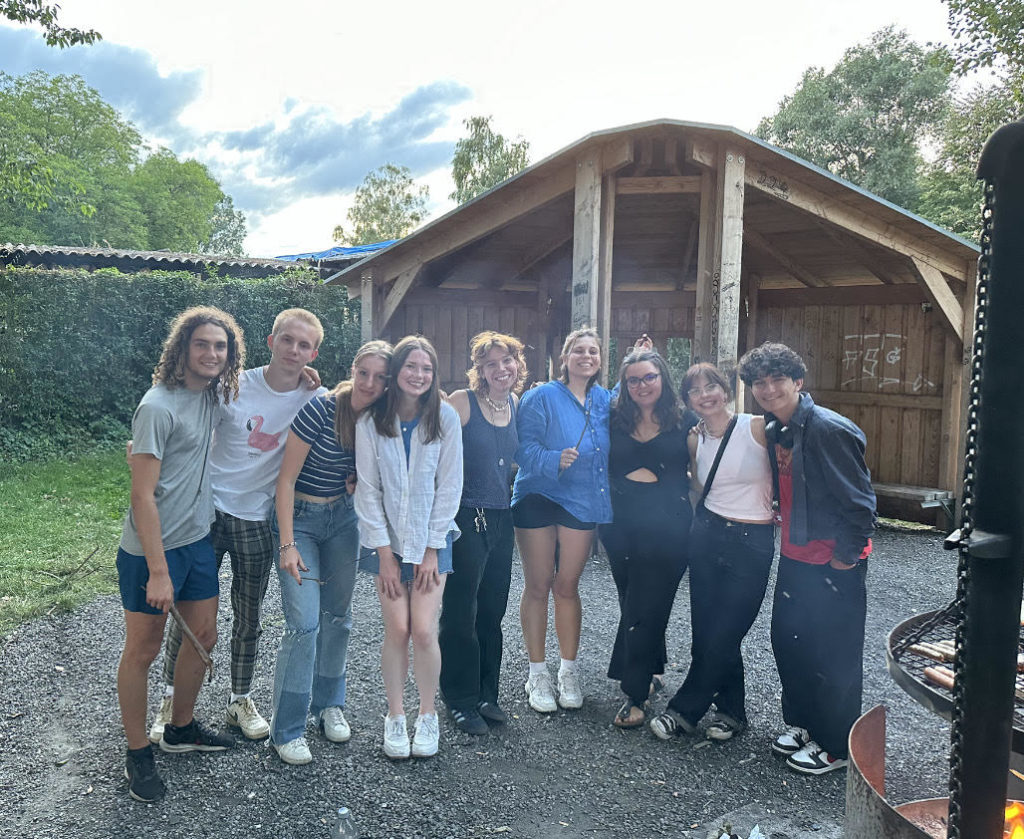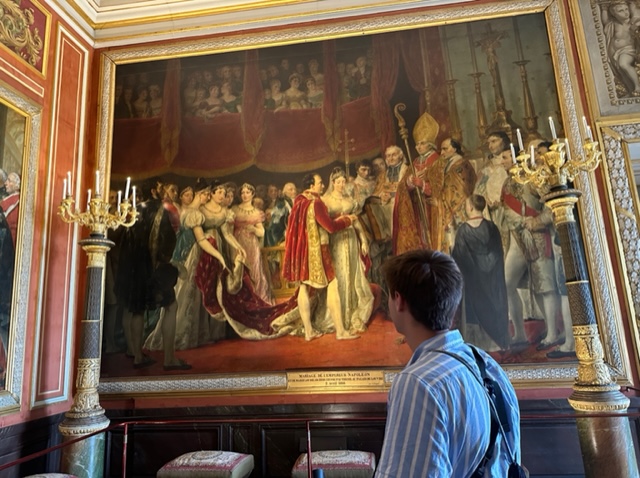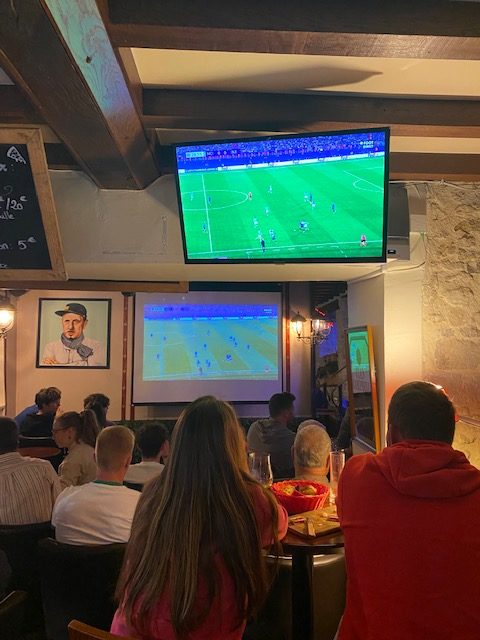
My time in Germany so far has introduced me to many new friends with varying cultures. Beyond a deepened understanding of traditional German culture, I’ve been able to learn more about the experience of those who move to Germany from other countries. It’s been interesting to hear in what ways my expectations or perceptions of other cultures have been inaccurate and to hear how others perceive my culture.
There’s not a more stereotypical American holiday than the 4th of July. To make up for missing barbecues back home and to introduce new friends to some American traditions, some American friends at the language center and I organized a 4th of July barbecue. We spent time grilling hot dogs by the lake and I taught a few people how to make a s’more (this was definitely my favorite.) We sang along to a 4th of July playlist featuring the songs that anyone who’s familiar with stereotypical “American” music could at least hum along to. Our friends from Germany and other countries soon began adding their own “classics” to the queue. To my surprise, I knew many of them.
Music and food have been some of the best ways for me to learn about the cultures of my classmates and friends. Recently my housemates shared nachos and baklava with me for dinner (they’ve moved to Germany from Mexico and Turkey), during which I was able to hear about their reasons for coming to Germany. Or learning more about coffee drinking habits from my friends who are native to Germany (they always prefer a hot coffee to an iced coffee, perhaps our greatest dissimilarity).












